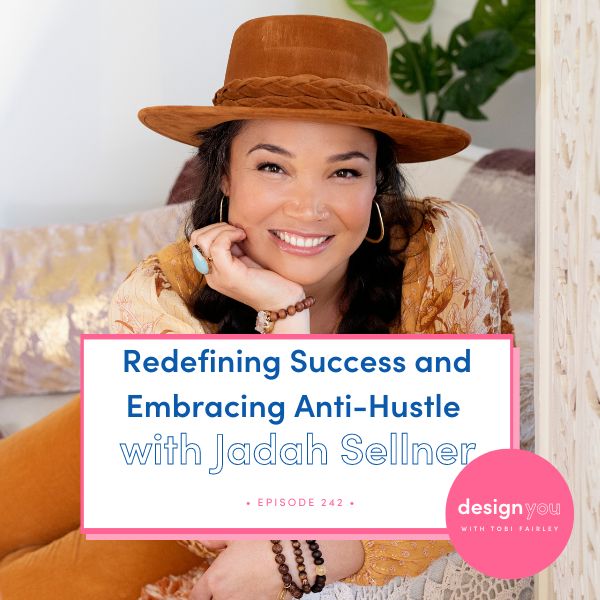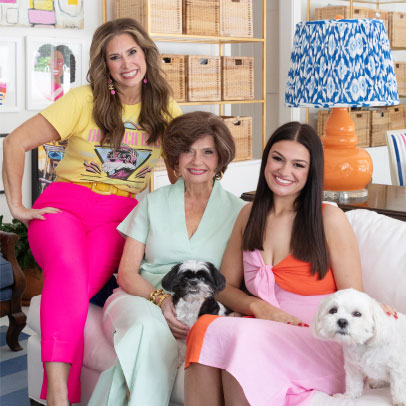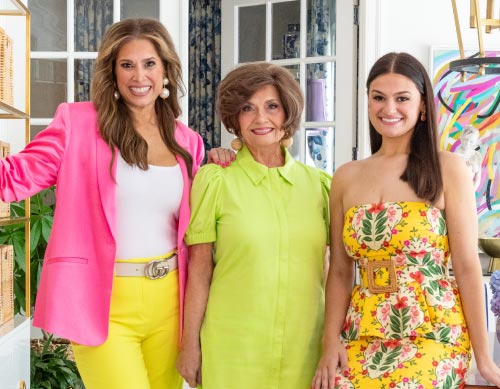
The last several years changed things for many of us—especially if we were working and caregiving from home—and now we’re all trying to figure out what the new “normal” looks like, or if we even want to return to “normal.” If you’ve felt like this last year has been the hardest of all, then you’re definitely not alone (I have too). That’s why I’m so excited for this week’s guest on the podcast.
Jadah Sellner is a bestselling author, business coach, international keynote speaker, TEDx presenter, poet, and host of the Lead with Love® podcast. She’s the author of SHE BUILDS: The Anti-Hustle Guide to Grow Your Business and Nourish Your Life. As the founder of Jadah Sellner Media, Inc. and She Builds Collective, Jadah helps women build their businesses and their lives in a way that works for them—with love. She has been featured in Forbes, O, The Oprah Magazine, and The Wall Street Journal.
Jadah and I always have amazing conversations, and this one is no exception, y’all. We talk about everything from how we’re responding to coming out of the pandemic and how our self-care has changed over time, to what it looks like to listen to our inner rebel and how our creativity shows up. Hear about how we’re changing the way we show up for ourselves and others and why redefining our success post-pandemic is so complex and important.












